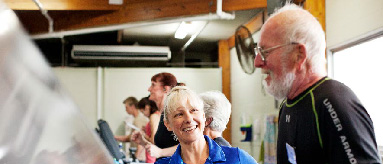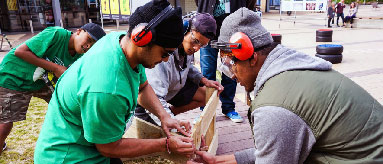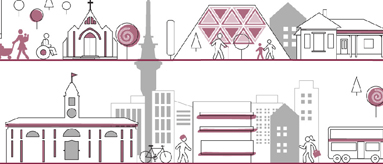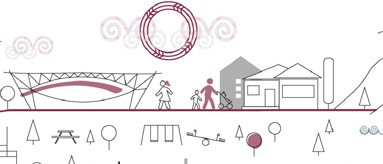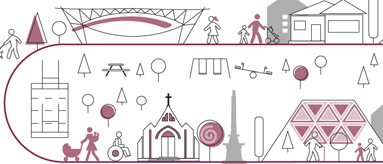Rohe arotahinga 6: Ki te arotahi i ngā haumi hei whakatika i ngā paheketanga, hei āwhina i ngā hapori e ngaua ana e te poharatanga Focus investment to address disparities and serve communities of greatest need
Growing socio-economic inequity in Auckland means that many people cannot achieve their potential.
As the population grows and successive generations of families experience inequity, the impact will be more visible and harder to change.
Adopting an ‘equitable’ approach means prioritising the most vulnerable groups and communities most in need to achieve more equal outcomes.
Communities most in need have limited capability to access social and economic resources, and opportunities, when compared to the general population. This restricts their ability to fully participate in society and in activities that have meaning and value to them.
Communities also possess different capabilities to respond to issues, for example, supportive family and strong social networks.
A strengths-based approach builds on existing capabilities. It also challenges deeply ingrained systemic and structural factors that lead to and reinforce inequality.
Identifying communities most in need is context-specific and may change in relation to the specific policy, initiative or service being delivered.

The difference between equality and equity
People-based initiatives put the needs of vulnerable Aucklanders, including children, young people and families, at the centre of decision-making and support those most at risk of poor outcomes.
Supporting all parts of our community to succeed will benefit individuals and families now and will produce wider socio-economic benefits across generations and for all of society. Focusing our efforts to address disparities and communities of greatest need means doing more to achieve equitable outcomes for all Aucklanders.
When people feel disadvantaged in relation to other individuals or communities, it reduces social cohesion and affects the development of a sense of belonging, which in turn reduces the likelihood of community and civic participation.
The reasons for socio-economic inequity are many and they often have to be addressed at the same time to make any real, long-lasting impact.

Fix it event in south Auckland
For example, we may increase school attendance, but if children go to school hungry they are not likely to succeed, and if they do not have waterproof clothing they may be unwell and unable to go to school.
Housing availability and costs are major contributing factors to the rise of inequity in Auckland. Rising housing costs increase neighbourhood segregation on the basis of wealth. Many people, particularly older people, young people, and people on low incomes are being priced out of their current community or cannot afford to hold on to their property. This can break social connections and support networks and add to the difficulty of finding employment or achieving educational success. This in turn limits the opportunities for social mobility and contributes to inter-generational disadvantage. Providing for a range of housing types and tenures in new developments helps support mixed neighbourhoods.
Place-based initiatives represent a targeted and integrated approach to addressing entrenched issues within a specific geographical area. Institutions and organisations can play their part in addressing disparities through place-based work such as The Southern Initiative.
Others can make a significant impact through the redevelopment of housing or assistance for warm and dry homes. Integrated approaches in targeted locations can achieve transformational change for Auckland's communities.
How this can be done
Focusing our efforts in communities of greatest need and areas where there are entrenched disparities in outcomes will create the greatest benefit to individuals, communities and Auckland as a whole.
Early action in areas of growth and significant change also provides the opportunity to focus activity on addressing disparities before they become embedded. This is a particular opportunity in the redevelopment of existing urban areas.
We are focusing on achieving change, and that means doing more in areas and communities where change is most needed.



